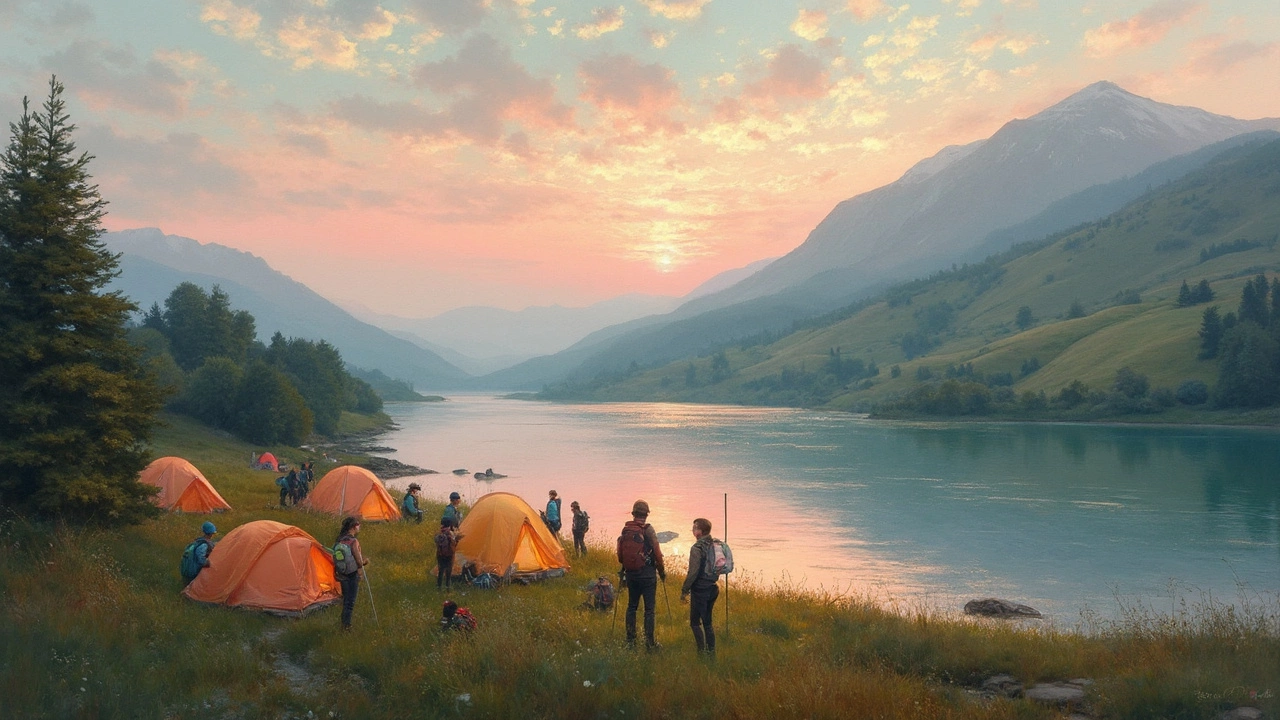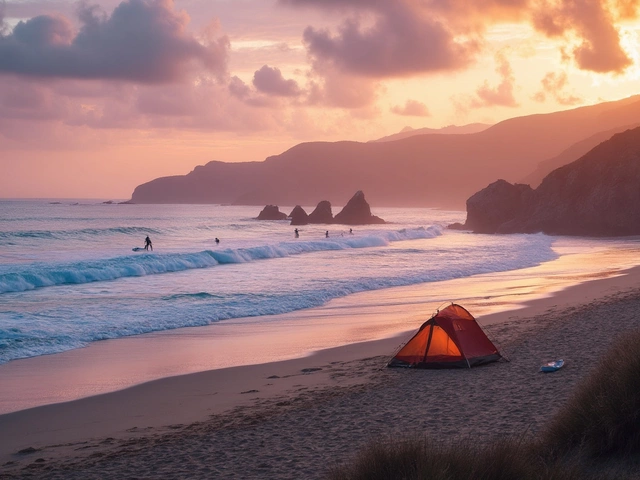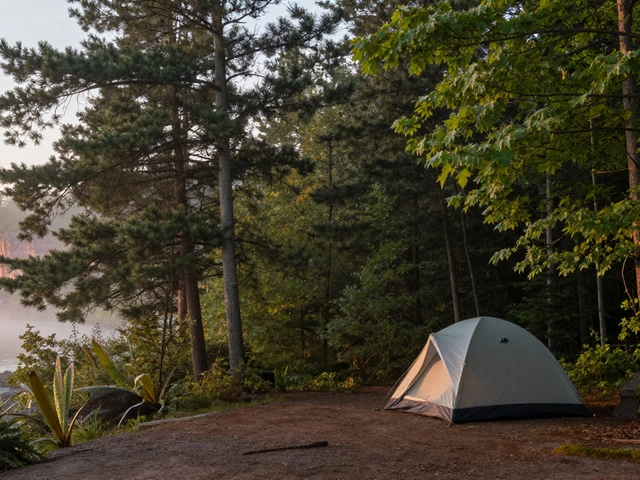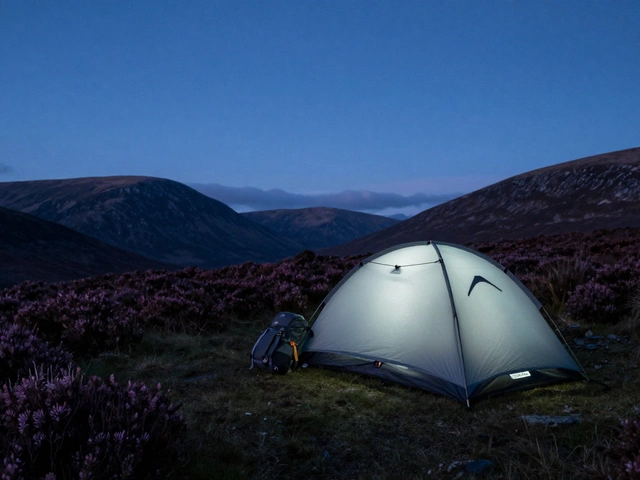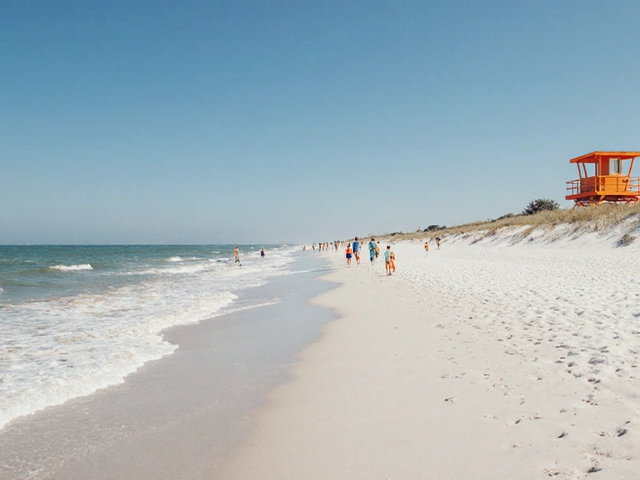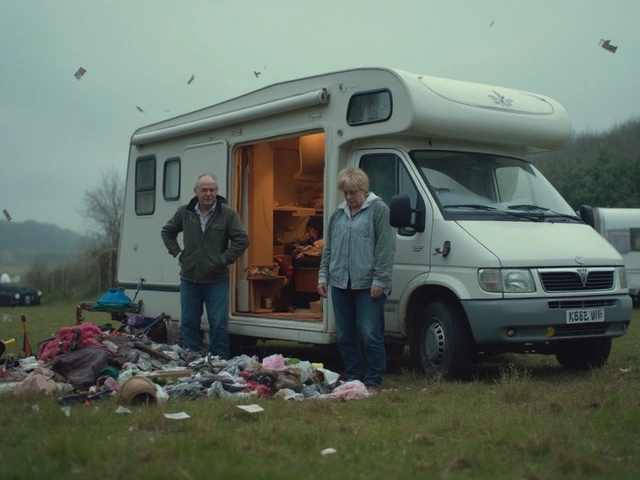Camping in the UK is an awesome way to reconnect with nature, but figuring out how long you can actually stay at a campsite might need a little research. Most campsites have their own set of rules, and trust me; it's important to get familiar with them before setting up your tent.
So how long can you stay? Well, it varies from campsite to campsite. Some places have a 28-day rule, which means you can keep your tent pitched in one spot for up to 28 days. This stems from local council regulations designed to prevent people from turning temporary campsites into semi-permanent residences. Always check with the specific site for any unique rules.
If you're eyeing a longer stay, it might be worth looking into sites that cater to long-term campers, complete with proper amenities and perhaps a friendly community vibe. These can be a neat option for those wanting to temporarily live the camp life while exploring the UK.
- Understanding Campsite Restrictions
- Local Council Regulations
- Long-term Camping Tips
- Booking for Extended Stays
- Benefits of Longer Camping Experiences
- Navigating Popular Campsites
Understanding Campsite Restrictions
When planning a camping trip in the UK, it's crucial to know the campsite stay duration specific to your chosen spot. Each campsite might have its own set of rules, mostly dictated by the local council's regulations.
28-Day Camping Rule
The most common rule you'll come across is the 28-day camping restriction. This means most sites allow you to camp there for up to 28 days within a calendar year. This rule is part of the UK's planning laws, designed to prevent campers from turning sites into permanent living spaces.
For example, in Cornwall, a popular camping destination, this limit is strictly enforced. Exceeding it without prior arrangement could lead to fines or being asked to leave.
Checking Local Council Regulations
Before pitching your tent, it's smart to check in with the local council or the campsite's management. They often have the most up-to-date information and can inform you about any temporary changes, especially if you're planning around seasonal events or local festivals.
Sites with Flexible Stays
Some campsites may offer more flexible terms, particularly in less populated areas. These can be a great option if you're looking for an extended retreat. Butterfly Camping Park in West Sussex, for instance, sometimes allows longer stays if pre-arranged.
Additional Restraints and Tips
- Always register at the campsite office upon arrival to avoid any misunderstandings.
- Keep a copy of the campsite rules or booking confirmation handy; this can help resolve any disputes.
- If in doubt, a quick call to the campsite can save you a lot of hassle in the long term.
| Region | Typical Stay Limit |
|---|---|
| Cornwall | 28 days |
| Lake District | 21-28 days |
| Scottish Highlands | Typically flexible |
Having all this information upfront helps you make the most of your camping UK experience without any unexpected bumps in the road. It's all about balancing adventure with a little planning!
Local Council Regulations
When it comes to camping in the UK, understanding local council regulations is key to enjoying a hassle-free experience. These rules can vary quite a bit depending on where you pitch your tent. Let's dig into what you need to know.
Why the 28-Day Rule?
Many campsites enforce a 28-day rule, which is a guideline many local councils adopt. This essentially means you can't stay in the same spot for more than 28 days without specific planning permission. It's a way to prevent semi-permanent living arrangements on lands not meant for such purposes. These rules also help protect green spaces and ensure they remain available for everyone to enjoy.
Variations by Council
Different areas may have their own twists on this rule. For instance, some councils might allow longer stays if the site meets certain conditions. In this case, knowing the specifics for your chosen camping area is smart. Always worth checking online or giving the site a call before you head out.
Seasonal and Special Campsites
Some UK campsites operate only during certain seasonal windows or as part of special events, and these might offer different terms entirely. These sites may have agreements with local councils for extended or unlimited stays within that window, especially at festival grounds or near large events.
Tips for Campers
- Before heading out, research the specific council rules for your camping area.
- Contact your campsite directly to confirm their policies.
- Look for reviews from fellow campers for insights on rules and how they're enforced.
With these guidelines, you can focus on what really matters: enjoying the great outdoors with confidence that you're following the rules!
Long-term Camping Tips
Sticking around a bit longer on a UK campsite? That's totally doable if you know the ropes. Whether you're planning a few weeks or stretching it to the max 28 days, here are some handy tips to keep your extended stay as smooth as possible.
Do Your Homework
Not all campsites are created equal if you're looking to camp long-term. Some places offer discounts for extended stays, so it's worth asking. Others might have specific rules around how long you can really linger, so check out the campsite rules before you book.
Gear Up Properly
A longer stay means your camping gear isn’t just along for a weekend jaunt. Make sure your tent is up to the task. A good rule of thumb is to have a waterproof one, given the UK's tendency to surprise you with showers. Don’t forget essentials like a comfy sleeping bag and a durable mat.
- A portable power bank is a lifesaver for charging devices when you’re away from electric hookups.
- Boredom busters: Pack books, board games, or a guitar if that’s your thing.
- Invest in a cool box to keep your perishables fresh longer.
Stay Healthy and Hygienic
When you’re camping for an extended period, maintaining hygiene is key. Many campsites in the UK have shower and toilet facilities, but it doesn't hurt to have a backup plan. A solar shower and biodegradable soap can work wonders. Also, keep your campsite tidy to avoid attracting any uninvited critter guests.
Socialize with Fellow Campers
Being friendly with your campground neighbors can enhance your experience and maybe even score you some practical advice. Long-term campers often form a mini community, so don't be shy to chat or lend a hand.
Food and Supplies
Prolonged camping means more groceries and necessities. Plan your meals ahead and look for local markets where you can stock up without spending a fortune. A point to note: a little meal prep can go a long way in saving you time and money.
Data Coverage
Having a reliable phone connection is crucial, so checking your phone's coverage in the area beforehand is smart. If you’re working remotely or need reliable internet, some campsites offer Wi-Fi, but don't count on it as a given everywhere.
Keep these tips in mind, pack wisely, and you'll be all set for a memorable and enjoyable extended camping experience.

Booking for Extended Stays
So you're planning a lengthy camping adventure in the UK and want to make sure you've got a spot secured? Nailing down a booking for an extended stay isn't too tricky, but there are some things you'll want to keep in mind. It's all about knowing where to look and what questions to ask.
Start Early and Communicate
If you're aiming for those popular campsites in the UK, especially during peak seasons, booking early is crucial. Many campsites can fill up quickly, so reaching out directly to them as soon as you've got your dates mapped out can spare you some stress. During your inquiry, let them know about your plan for a longer stay, as some sites have specific spots or deals for these cases.
Look for Campsites With Extended Stay Options
Some campsites offer special packages or deals for folks looking to set up shop for a bit longer than usual. These sites often have robust amenities like laundry facilities, reliable Wi-Fi, and maybe even group activities. Doing a little browsing online can reveal options that cater to
Benefits of Longer Camping Experiences
Sticking around a campsite for a longer camping experience can have its perks. Not only do you get to escape the hustle and bustle for a bit, but you can also dive deeper into the great outdoors. You really get a feel for the rhythm of nature, whether it’s the morning bird chorus or the way shadows play across your tent at dusk.
One major upside of extended stays is the chance to truly relax and unwind. Instead of rushing around trying to fit everything into a weekend, you have time to explore at your own pace. Hike those longer trails you wouldn't normally have time for, or simply chill out and read that book you've been meaning to finish.
Cost-Effective Escapes
Camping for an extended period can often be cost-effective, especially when compared to other types of holidays. Many campsites offer discounted rates for longer stays, which means you can stretch your budget further. Cooking your own meals on a portable stove saves plenty too—an opportunity to brush up on your campfire cooking skills!
Community and Connection
Staying longer means you might form connections with fellow campers or even the local folks. It's common around UK campsites to host potluck dinners or share stories by the campfire. This sense of community can make the whole experience more enriching.
Skill Development
Spending a lot of time at a campsite enhances your outdoor skills and adaptability. You could learn to pitch your tent faster or even get into other outdoor pursuits like fishing, orienteering, or birdwatching.
Here’s a snapshot of some frequent activities among long-term campers:
- Fishing and foraging local areas.
- Mastering outdoor cooking and meal prepping.
- Developing photography skills with nature as your muse.
- Engaging in environmental conservation activities.
Finally, let’s not ignore the obvious: it’s a great break for your mental health. A longer stay in nature has been known to help reduce stress and increase happiness levels. So, if you have the flexibility to hang out on a campsite for a while, give it a shot—your mind and body will thank you!
Navigating Popular Campsites
When it comes to camping in the UK, it’s all about knowing where to pitch your tent. With so many campsites scattered across the country, each offers something unique. Whether you’re all about the seaside breeze, love a good mountain view, or prefer a cozy woodland spot, there’s a place for everyone.
The Popular Spots
Places like the Lake District or Snowdonia National Park are always a hit. Their stunning landscapes and countless adventure opportunities draw crowds, especially during the peak season. Sites here tend to book out quickly, so snagging a spot requires a bit of foresight.
If you fancy something coastal, Cornwall has several fantastic UK campsites where surfers and walkers flock throughout the year. Ivy-covered cliffs, golden beaches—what’s not to love? Just make sure to check if there are any campsite stay duration limits to plan your time effectively.
Finding the Right Site
- Plan Ahead: Diving into Google maps or camping forums can help refine your search. Look for reviews that speak to your vibe, whether that’s peace, parties, or family-friendly fun.
- Be Flexible: Sometimes the site you’re eyeing is full. Having a list of alternates can save the day.
- Check Amenities: Access to clean toilets, showers, or even Wi-Fi could make your stay comfortable, depending on what matters to you.
You might bump into helpful website resources too, listing popular spots and when they’re available, alongside any specific site rules they enforce.
Booking Tips
Popular sites often offer online booking, which makes the process easier. However, some smaller or more rustic spots might still rely on phone reservations. Always confirm your booking, especially if you’re planning for a long-term camping adventure.
Use these tips and a sprinkle of adventure spirit to carve out your perfect UK camping experience. If you're lucky, you might even discover a hidden gem where the stars align just right for your next getaway!
